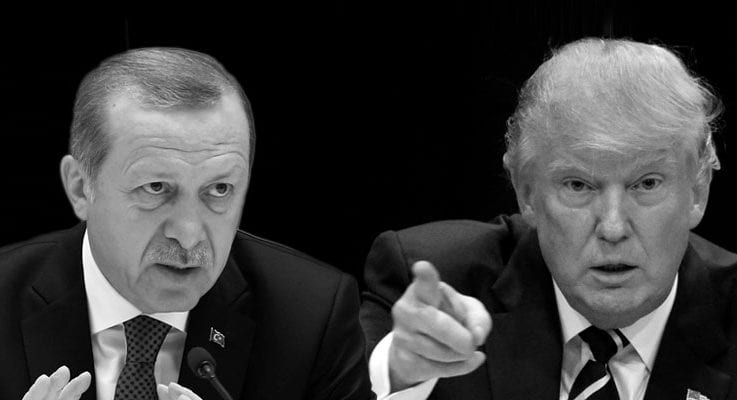Trump must set some boundaries for Turkey’s president.
By MAX BOOT, Commentary
Two of America’s illiberal allies in the Muslim world have just received expressions of support from President Trump. He rolled out the red carpet at the White House for President Abdel Fattah al-Sisi of Egypt, and he rewarded President Recep Tayyip Erdogan of Turkey with a congratulatory phone call after Erdogan “won” an apparently rigged referendum enhancing his already vast power. But while both Sisi and Erdogan appear to be in Trump’s good graces, they have reacted in very different ways to the American support they are receiving.
At least, in Sisi’s case, Trump can claim to have gotten something in return—the release of an American citizen named Aya Hijazi who has been imprisoned in Egypt for three years, along with her husband, on trumped up charges. The Washington Post editorial board pointed out, however, that both Sisi and the previous Egyptian strongman, Hosni Mubarak, have had a pattern of unjustly arresting Americans and releasing them as a “favor” to Washington. This happened under both the Obama and Bush administrations, both of whom pressured Egypt regarding human rights abuses. Trump can hardly claim that his approach, sweet-talking Sisi, is uniquely effective.
But the Trump approach is at least working better in Egypt than it is in Turkey. Far from feeling compelled to kowtow to Washington in return for Trump’s blessing, Erdogan has extended the geopolitical equivalent of a middle-finger to America. On Tuesday, Turkish aircraft bombed the encampments of Kurdish rebels in both Syria and Iraq on the grounds that they are linked to the PKK rebel group inside Turkey. These are the very same rebels that the U.S. is arming and supporting in the campaign against ISIS.
The New York Times noted that “American officials said Turkey had informed the United States less than an hour in advance that it intended to carry out the bombing raids in the crowded airspace over northern Syria and Iraq. American officials said that they had asked Turkey not to proceed without proper coordination, but that the request was ignored.” U.S. Central Command is understandably upset, and it doesn’t care who knows it. Its spokesman tweeted: “Our partner forces have been killed by #Turkey strike, they have made many sacrifices to defeat #ISIS.”
At the same time that Erdogan is ignoring U.S. interests in Syria and Iraq, he is also showing his contempt for concerns raised about the fairness of the referendum vote. Rather than acceding to opposition requests to investigate millions of suspect ballots (the Wall Street Journal detailed myriad problems with the vote), he is intensifying the crackdown he launched in response to a failed military coup last summer. On Wednesday, The Guardian reported, Erdogan “detained more than 1,000 people and suspended over 9,100 police” who are alleged to have links with Fethullah Gülen, the Islamic preacher living in American exile who Erdogan now accuses of orchestrating all opposition to him.
As Eric Edelman, a former ambassador to Ankara, argues in this superb Weekly Standard article, Erdogan is now on track to rule twice as long as Ataturk, the founder of modern Turkey, did, and in the process to “complete the work of undoing Atatürk’s secular revolution, remaking the country in his own image.” Given that Erdogan is transforming the country into an Islamist republic, this should be of some concern to President Trump, who rightly identified “radical Islamic terrorism” as a major threat to the U.S. and the West.
Under these circumstances, Trump should think carefully about what message he delivers when Erdogan is due to arrive in Washington for a state visit on May 16-17. The president needs to communicate that the U.S. is happy to take Turkish concerns in Syria and Iraq into account, and values Turkey’s help in fighting against terrorism, but that it will not stand for Turkish actions that are inimical to American interests.
More broadly the administration needs to rethink U.S. policy toward Turkey, which is hardly acting like a NATO ally should. Instead, it is increasingly becoming, like Pakistan, a “frenemy” with whom we can find some points of cooperation (as we do with Pakistan) but that on a whole host of important issues is opposed to American interests.



















